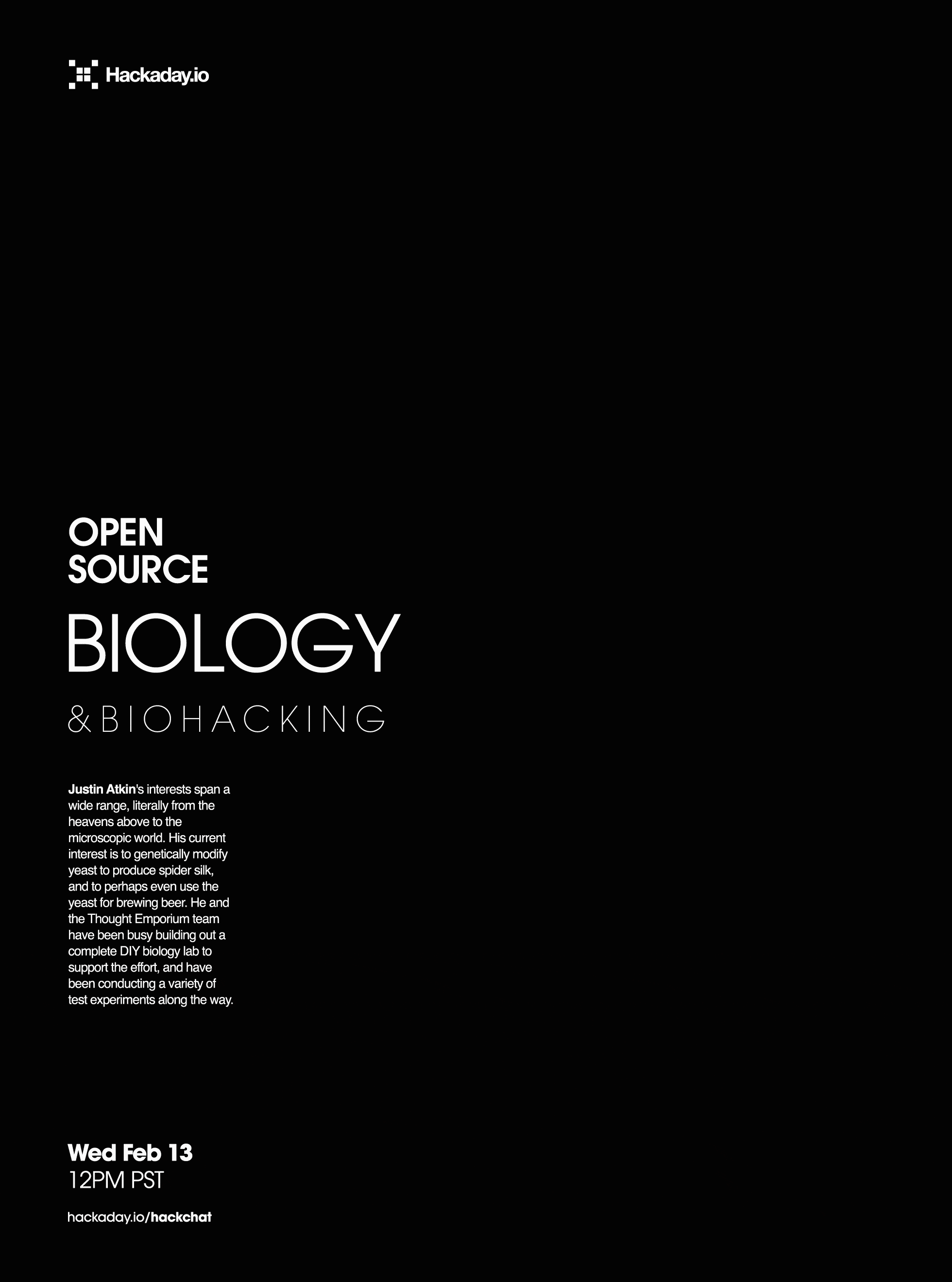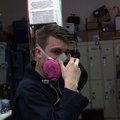Justin Atkin will be hosting the Hack Chat on Wednesday, February 13, 2019 at noon PST.
Time zones got you down? Here's a handy time converter!

Justin's name might not ring a bell, but you've probably seen his popular YouTube channel The Thought Emporium, devoted to regular doses of open source science. Justin's interests span a wide range, literally from the heavens above to the microscopic world. His current interest is to genetically modify yeast to produce spider silk, and to perhaps even use the yeast for brewing beer. He and the Thought Emporium team have been busy building out a complete DIY biology lab to support the effort, and have been conducting a variety of test experiments along the way.
Please join us for this Hack Chat, in which we'll cover:
- The how's and why's of yeast genetic engineering;
- What it takes to set up an effective biology lab from scratch;
- An update on the current status of the spider-silk yeast project; and
- Where the open-source biology field is, and where it's going.
















The biological theme is balancing on the legal field. I want all questions of a tolerant attitude to the living to be recorded. I recently wrote an essay on the use of DNA cloning to treat genetic diseases. I took advantage of this resource https://edubirdie.com/law-essay-writing-service Students should know that experiences are normative and dangerous to society.